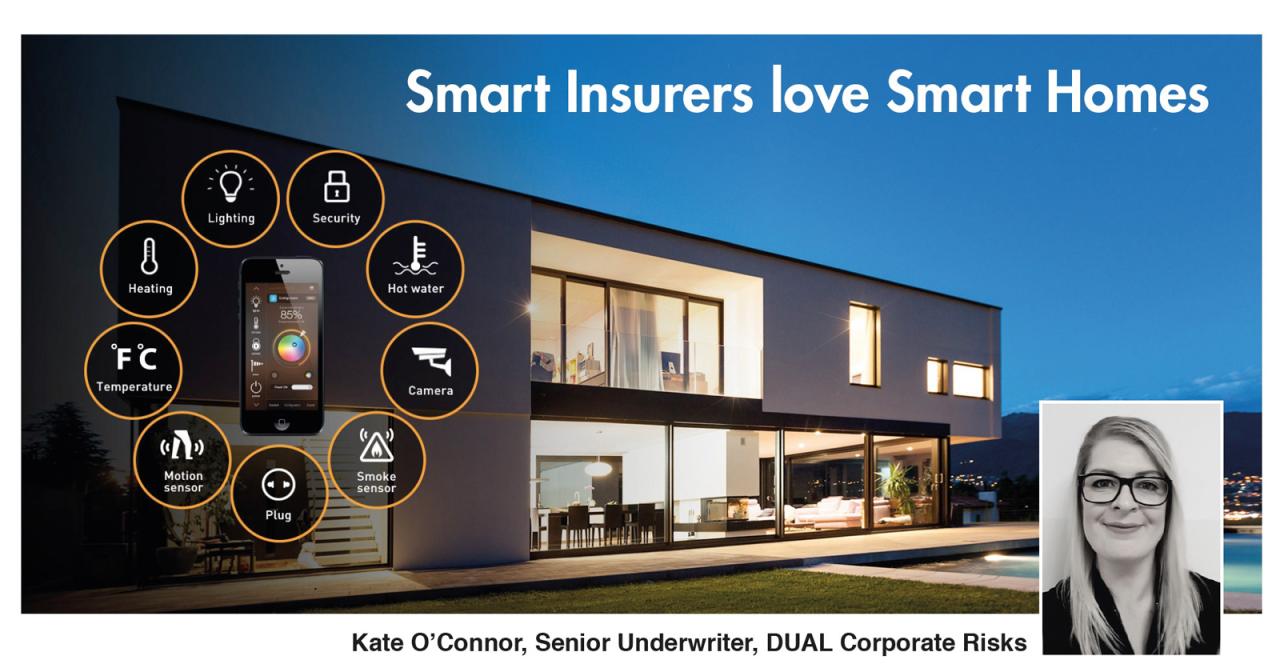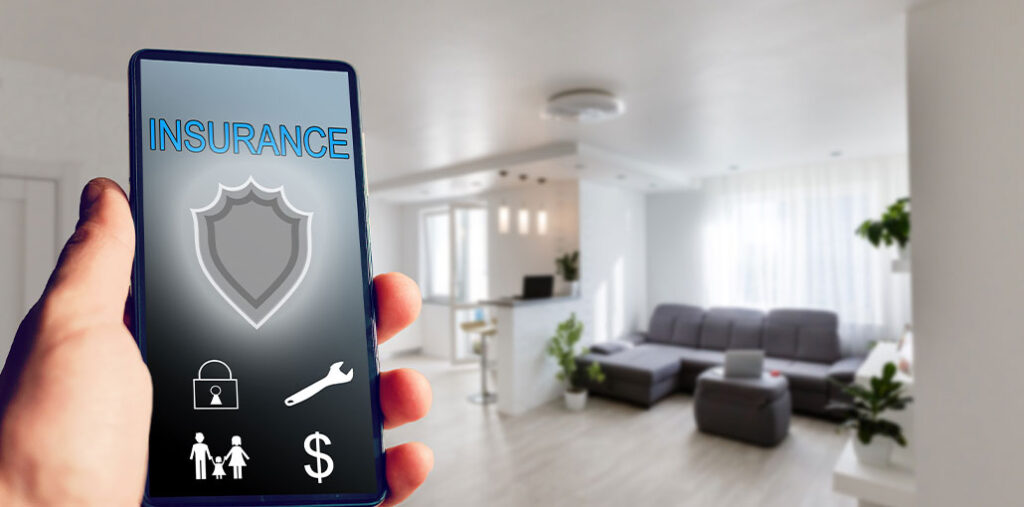Top-Rated Insurance for Modern Smart Homes: A Comprehensive Guide

Delving into the world of insurance for modern smart homes, this guide explores the crucial aspects of securing your technologically advanced abode. From understanding the importance of insurance to choosing the right coverage options, this narrative aims to provide valuable insights for homeowners navigating the realm of smart home protection.
Overview of Top-Rated Insurance for Modern Smart Homes

Insurance for smart homes is essential in protecting your investment in the latest technology while providing coverage for potential risks. With the increasing popularity of smart devices and home automation systems, having the right insurance policy in place is crucial to ensure peace of mind.
Key Features of Top-Rated Insurance for Smart Homes
- Comprehensive Coverage: A top-rated insurance policy for modern smart homes should offer coverage for a wide range of risks, including damage to smart devices, cyber attacks, and personal liability.
- Cutting-Edge Protection: The policy should include provisions for protection against emerging risks specific to smart homes, such as data breaches and hacking incidents.
- Customized Solutions: Insurance providers should offer tailored solutions that meet the unique needs of smart homeowners, considering the types of devices and systems installed in the home.
- Excellent Customer Service: A top-rated insurance provider should offer responsive customer service and claims support to ensure a smooth experience for policyholders.
Examples of Insurance Providers for Smart Homes
Some insurance companies known for offering coverage for modern smart homes include:
- State Farm: State Farm offers smart home insurance policies that cover smart devices, personal property, and liability.
- Allstate: Allstate provides insurance solutions for smart homes, including protection against cyber risks and device malfunctions.
- Lemonade: Lemonade offers innovative insurance options for smart homeowners, with a focus on digital convenience and quick claims processing.
Coverage Options for Smart Home Insurance

When it comes to insuring a modern smart home, there are various coverage options available to protect your devices, appliances, and systems. Understanding the different types of coverage and their importance can help you choose the right policy for your needs.
Coverage for Smart Home Devices
Smart home devices such as security cameras, smart thermostats, and smart locks are typically covered under most insurance policies. These devices are essential for enhancing security and convenience in your home, and having coverage for them can provide peace of mind in case of damage or malfunctions.
Coverage for Smart Home Appliances
Smart home appliances like refrigerators, ovens, and washing machines can also be covered under smart home insurance. These appliances are often more expensive to repair or replace due to their advanced technology, making coverage crucial to avoid unexpected costs.
Coverage for Smart Home Systems
Smart home systems such as lighting, heating, and air conditioning systems are integral to the functionality of a modern smart home. Insurance coverage for these systems can help in case of breakdowns or malfunctions, ensuring your home remains comfortable and efficient.
Importance of Liability Coverage
Liability coverage is a crucial component of smart home insurance policies as it provides financial protection in case someone is injured on your property or if you accidentally damage someone else's property. With the increasing complexity of smart home technology, liability coverage can safeguard you from unforeseen accidents or incidents.
Factors to Consider When Choosing Insurance for Smart Homes
When selecting insurance for smart homes, homeowners should take into account several key factors that can impact their coverage and premiums. These factors include the value of smart devices installed in the home, as well as the location and local risks associated with the property.
Value of Smart Devices
The value of smart devices within a home can greatly impact insurance coverage. Homeowners should consider the cost of replacing or repairing these devices in the event of damage or theft. It is important to ensure that the insurance policy provides adequate coverage for all smart devices to avoid any financial burden in the future.
Location and Local Risks
The location of a smart home and the local risks associated with that area can also influence insurance premiums. Homes located in high-risk areas, such as those prone to natural disasters or high crime rates, may have higher insurance premiums.
It is essential for homeowners to be aware of the specific risks in their area and choose insurance coverage that adequately protects against these potential threats.
Claims Process and Customer Support for Smart Home Insurance
When it comes to smart home insurance, the claims process and customer support are crucial aspects that can greatly impact the overall experience for homeowners. Let's delve into how insurance companies typically handle claims related to smart home technologies and why responsive customer support is essential in this context.
Typical Claims Process for Smart Home Insurance Policies
When a claim needs to be made under a smart home insurance policy, the process usually involves the homeowner contacting their insurance provider to report the issue. The insurance company may then request relevant documentation or evidence to support the claim, such as proof of damage or a police report in the case of theft.
Once the claim is verified, the insurance company will assess the extent of the damage and determine the coverage amount based on the policy terms.
Importance of Responsive Customer Support
Responsive customer support is crucial for smart home insurance, as technology-related claims may require immediate attention and technical expertise. Homeowners need to be able to reach their insurance provider easily and receive timely assistance to address any issues with their smart home devices.
Prompt and effective customer support can help expedite the claims process and ensure that homeowners have the support they need during stressful situations.
Handling Claims Related to Smart Home Technologies
Insurance companies may employ various methods to handle claims related to smart home technologies, such as partnering with tech experts to assess damage or providing assistance with troubleshooting smart devices remotely. Some insurance providers may offer specialized coverage for smart home devices, ensuring that homeowners receive adequate protection for their connected devices in case of malfunctions, cyber-attacks, or other issues.
Ultimate Conclusion
In conclusion, ensuring your modern smart home is adequately protected through top-rated insurance is not just a choice, but a necessity in today's digital age. By considering the factors discussed and selecting the appropriate coverage, you can enjoy peace of mind knowing your home and its futuristic devices are safeguarded against unforeseen risks.
Top FAQs
What are the key features of a top-rated insurance policy for smart homes?
A top-rated insurance policy for smart homes typically includes coverage for smart devices, appliances, systems, and liability protection tailored to the unique risks associated with these technologies.
How does the value of smart devices impact insurance coverage?
The value of smart devices can influence insurance coverage by determining the amount of coverage needed to replace or repair these advanced technologies in case of damage or malfunction.
What factors should homeowners consider when selecting insurance for their smart homes?
Homeowners should consider factors such as coverage options, liability protection, claims process efficiency, and how location-specific risks can affect insurance premiums when choosing insurance for their smart homes.

